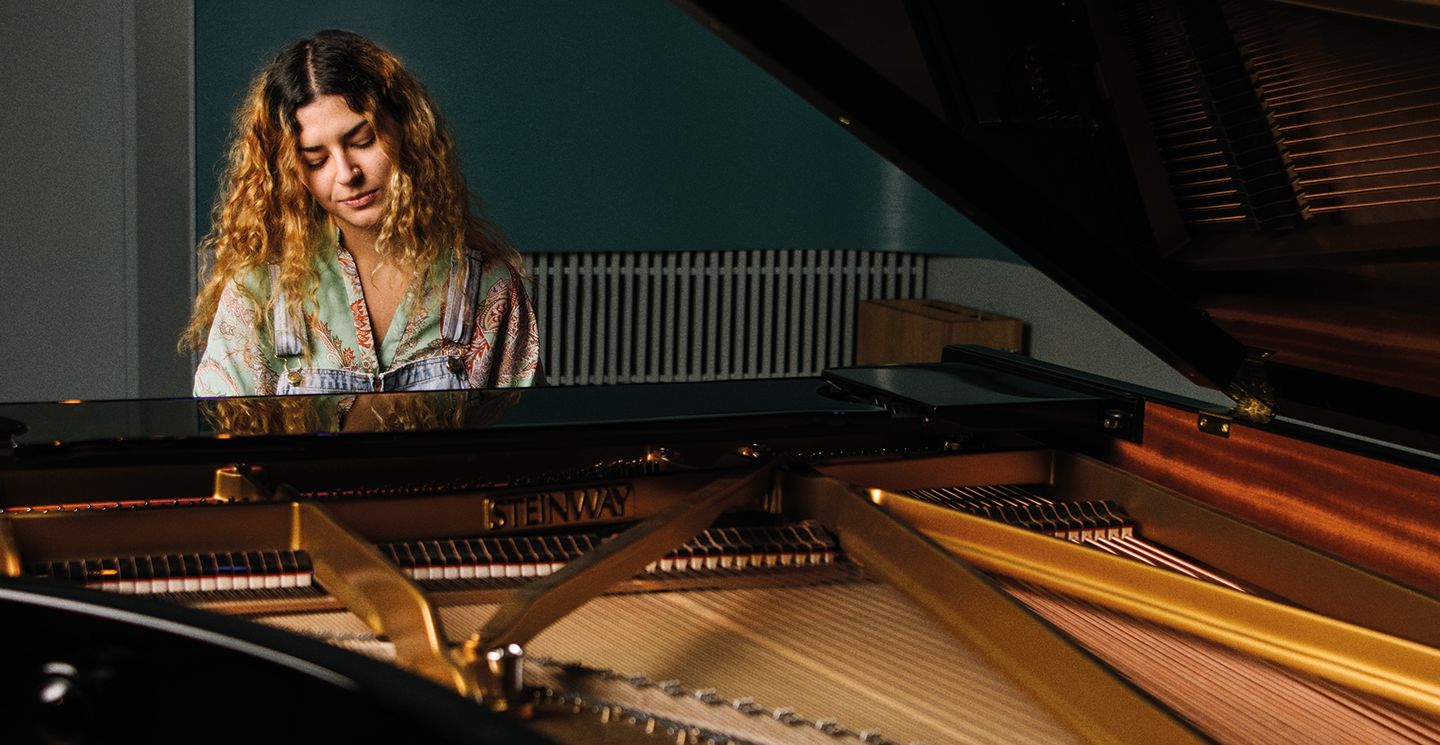
Performance, Jazz
The Master's Programme in Jazz gives you in-depth skills as a musician, composer and ensemble leader for work in the diverse field of jazz.
The content of the Master's Programme in Jazz aims at developing in-depth skills on your own instrument in combination with independent artistic creation in improvisation, composition and music production.
The programme includes elective courses and student-driven artistic projects and ends with a graduate degree project.
Admissions
To be eligible for this programme, you need to
- meet the general entry requirements for second-cycle courses and study programmes, meaning you must have completed an undergraduate study programme of at least 180 ECTS
- meet the specific entry requirements which are a Degree of Bachelor of Fine Arts in Music (180 credits) or equivalent, as well as passed entrance examination.
If the number of eligible applicants exceeds the number of places, a selection will take place. Selection is based on results on entrance examination. You as an applicant are placed in a selection group according to the instrument you apply for.
Read more about general entry requirements
Read the test description for the programme for information about the entrance examination content.
Programme Content
The two-year Master's Programme in Jazz consists of courses in your main instrument at a high artistic level based on your profiling, so the actual content and the distribution of different courses in the programme can look different for each student. But courses within the main subject always include one-to-one lessons and artistic tutoring on your main instrument.
Focus on your Musical Idea
The main instrument course aims to stimulate the development of your individual artistic specialisation as instrumentalist and improviser. The link between instrumental technology and improvised language is clarified. The goal is that you will be able to function in many varied musical environments with your particular artistic kind intact.
You will appear both as an ensemble musician and soloist in concerts documented and analysed in seminars, which will provide further study material.
Together with research preparatory and elective courses, your tailor-made training and education is then created.
Balance between Creation and Reflection
A master's programme prepares you for further research and will provide you with knowledge about research methodology. Whether you want to move on to research studies or not, this is an essential part of being able to reflect on your own musicianship and put it in context.
In order to carry out your artistic work, a research preparation course focuses on a lecture and seminar series with literature studies and outstanding guest teachers. The course deals with musical ethical approaches in a historical perspective and music psychological conditions for musicians.
Artistic research methodology involves seminars in which documentation, analysis and communication of music-making and musicianship are problematised. The seminars also deal with the construction and communication of musical knowledge in a knowledge-theoretical perspective.
In addition there are discussion seminars where students' degree work is continually ventilated, both in terms of artistic content and the reflective theoretical part of the work.
The education's final course in Degree Project aims at giving you as a student the opportunity to showcase your artistic level in a concert or music production, and to formulate yourself in a written, reflective work about working methods and experiences in the process of the degree project.
Application dates and deadlines
1 December 2023
Application opens at universityadmissions.se External link, opens in new window.. Please see our Step-by-step guide on how to apply.
External link, opens in new window.. Please see our Step-by-step guide on how to apply.
15 January 2024
Application deadline and last day to rank your programmes and courses.
16–18 January 2024
An email is sent to the email address you entered on universityadmissions.se with instructions on how to submit your test to KMH including the link for uploading Test 1. See the test description for information on what to submit.
25 January 2024
- Last day to upload Test 1 to KMH.
- Supporting documentation deadline. Last day to submit documentation to universityadmissions.se
 External link, opens in new window. and show that you meet the entry requirements.
External link, opens in new window. and show that you meet the entry requirements. - Deadline to document fee exempt status (EU/EEA) or pay the application fee (non EU/EEA). Fees, scholarships, residence permits (universityadmissions.se)
 External link, opens in new window.
External link, opens in new window.
14–20 February 2024
Results for Test 1 are sent via email. Passing applicants will receive information and invites to the next test.
9–17 March 2024
Entrance examinations during week 11.
12 April 2024
First notification of selection result. You must reply to keep your place/remain on the waiting list.
25 April 2024
Last day to reply to your offer and keep your place (applies to both admitted and applicants on waiting list). You do this on My pages on universityadmissions.se External link, opens in new window..
External link, opens in new window..
8 May 2024
Second notification of selection result.
26 August 2024
Introduction week and registration.
2 September 2024
Semester starts.

